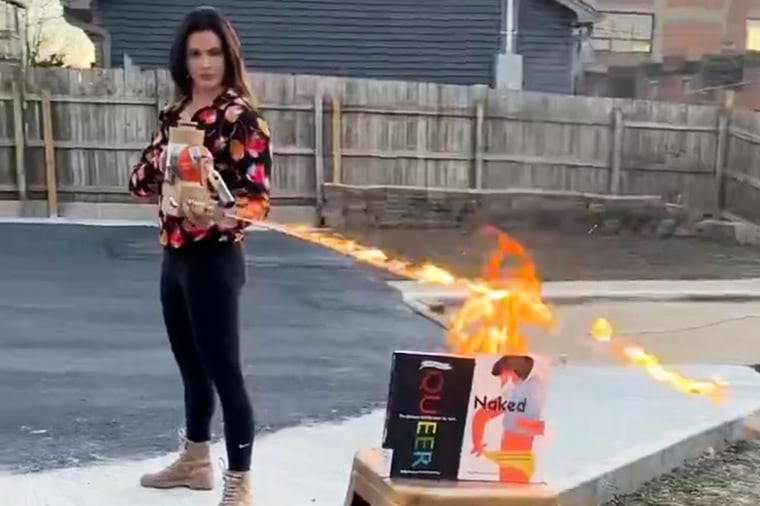Valentina Gomez: GOP Candidate & Social Media Firestorm
Can a social media firestorm translate into political success? Valentina Gomezs tumultuous campaign for Missouri Secretary of State provides a compelling case study in the power and peril of online notoriety in the modern political landscape.
Gomez, one of eight Republican contenders vying for the Secretary of State nomination in 2024, embarked on a campaign that quickly garnered attention, albeit not always for the reasons she might have hoped. Her aggressive social media presence, punctuated by inflammatory rhetoric and provocative videos, generated both fervent support and widespread condemnation. While she successfully carved out a space for herself in a crowded field, her tactics ultimately proved divisive, culminating in a decisive defeat in the August 6th primary. Her story raises critical questions about the evolving nature of political discourse and the role of online platforms in shaping public opinion.
| Full Name: | Valentina Gomez |
| Party Affiliation: | Republican |
| Campaign Sought: | Missouri Secretary of State (2024) |
| Primary Election Result: | Lost (August 6, 2024) |
| Campaign Style: | Provocative, utilizing social media extensively |
| Key Controversies: | Anti-LGBTQ+ rhetoric, comments on undocumented immigrants, controversial campaign videos |
| Reference: | Ballotpedia (Ballotpedia was referenced in the provided source material.) |
Gomezs campaign strategy seemed to deliberately court controversy. She openly embraced a style reminiscent of Representative Lauren Boebert, relying heavily on provocative statements and visually striking online content. One of her slogans, Dont be weak and gay, drew immediate criticism for its blatant homophobia and quickly became a focal point of her campaign. This slogan, coupled with a campaign video depicting Gomez running through a historically LGBTQ+ neighborhood, further solidified her image as a provocateur willing to push boundaries.
Beyond her anti-LGBTQ+ stance, Gomez also generated controversy with her comments on undocumented immigrants. She advocated for public executions of those convicted of violent crimes, a position that sparked outrage and accusations of extremism. This hardline stance, while potentially appealing to a specific segment of the electorate, alienated many and contributed to her ultimate downfall.
The reliance on social media as the primary vehicle for her campaign allowed Gomez to bypass traditional media outlets and directly engage with potential voters. She leveraged platforms like X (formerly Twitter) to disseminate her message and cultivate a dedicated following. While this approach offered a degree of control over her narrative, it also created an echo chamber, reinforcing existing biases and limiting opportunities for nuanced dialogue.
Gomezs loss in the primary to Denny Hoskins, who secured 24.4% of the vote, underscores the limitations of a campaign built solely on provocation. While her social media tactics initially generated significant buzz, they ultimately failed to translate into electoral success. Her divisive rhetoric and controversial stances likely alienated a broader swathe of voters than they attracted.
Following her defeat in Missouri, Gomez announced her intention to relocate to Texas and challenge Representative Dan Crenshaw in the 2026 election. This decision suggests a continued commitment to her confrontational style of politics, despite its previous failures. Whether she can adapt her approach to a new political landscape remains to be seen. The outcome of her future campaigns will offer further insights into the complex relationship between social media, political polarization, and electoral outcomes.
The story of Valentina Gomez's 2024 Missouri campaign serves as a cautionary tale. It highlights the potential pitfalls of prioritizing online notoriety over substantive policy discussions. While her digital savvy allowed her to gain initial traction, her reliance on divisive rhetoric and controversial stances ultimately proved unsustainable. Her experience raises important questions about the long-term viability of campaigns fueled primarily by outrage and provocation, and whether such tactics can genuinely resonate with voters beyond a narrow, highly engaged base.
Her campaign unfolded largely online, playing out in real time on platforms like X, where she frequently engaged with supporters and detractors alike. This direct access to her audience allowed her to circumvent traditional media gatekeepers and control her messaging. However, this approach also meant that her most extreme statements and controversial pronouncements were amplified and disseminated widely, potentially contributing to a more polarized perception of her candidacy.
Despite the significant online attention she garnered, Gomez's campaign failed to gain substantial traction among Missouri voters. Her defeat in the primary suggests that her provocative tactics, while effective in generating buzz, ultimately alienated more voters than they attracted. The results raise questions about the limits of social media-driven campaigns and the importance of engaging with voters on substantive policy issues.


